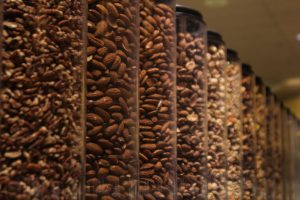
They’re nothing but an expensive myth
By Jessica Berget, Opinions Editor
I hate to sound like a Seinfeld intro, but what’s the deal with “superfoods”? There’s nothing “super” about them, except maybe how expensive and popular they become once they are deemed a “superfood.”
The fact is many of these foods have been eaten by other cultures for years, but as soon as they enter Western society they get the “super” label stuck on them and become a trend. Turmeric for example is a popular spice in Asian cuisine, but only recently became prominent over here because it was regarded as a miracle ingredient said to “prevent the development of cancers.”
Once people realize how good some foreign products are for their health the demand goes way up. As a result, these once-cheap staples from other countries become so expensive that even the farmers who grow them can’t afford to eat them. Take quinoa for instance—although it is a dietary staple for the people of Bolivia and Peru, because of its popularity its price has tripled since 2006, so the people who grew up eating it can no longer afford it.
Sure, these foods are probably good for you, but they don’t have an almighty power to make anyone who eats them healthier, like the name implies. However, you don’t have to take my word for it. Ask Dr. Nina Shapiro, an author on the very subject. In a video on Business Insider about her book Hype: A Doctor’s Guide to Medical Myths, Exaggerated Claims, and Bad Advice, she concurs that there is no such thing as a “superfood.”
“The notion of a superfood is that it is so good for you, it will prevent cancer and even treat cancer or stave off evil illnesses, but food alone cannot do that,” she says.
She goes on to say that many meals that were once considered healthy in the ’80s or ’90s are now known to be bad for you. Frozen yogurt was big in the ’90s because so many people believed it was a healthier alternative to ice cream, but in reality, it has just as much sugar, fat, and calories as ice cream. These snacks and ingredients aren’t really miracles—they’re just health trends that get hyped up for profit.
There are many things that are really good for you like berries, nuts, or dark leafy greens, but the term “superfood” means nothing. Health and diet trends are constantly changing, so just eat what you want and don’t give in to the super myth.


